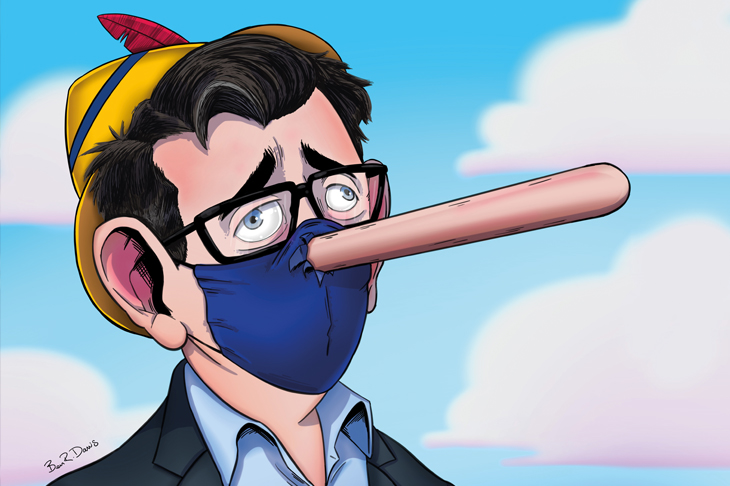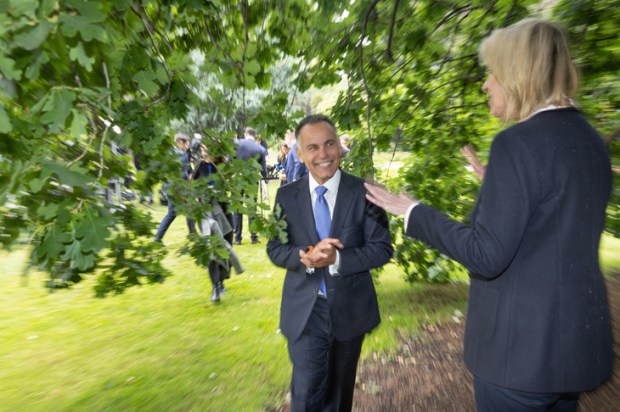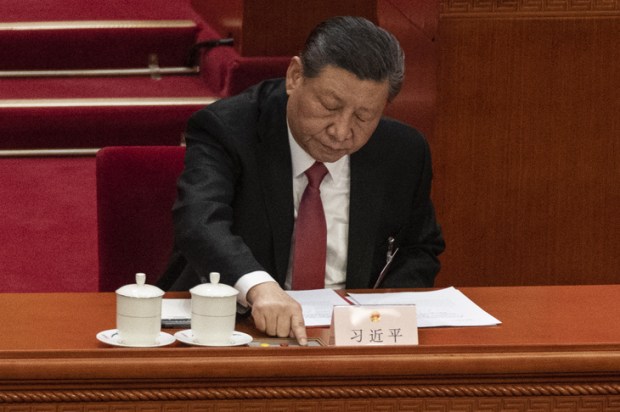I never thought I would live in a police state. Surely democratic Australia would remain a bastion of freedom in which any restrictions were a last resort, applied precisely, consistently and proportionately to a clearly identified threat? That can no longer be said of the State of Victoria; Melbourne in particular, where most residents were placed under house arrest for 23 hours a day; movement, where possible, was restricted to a five-kilometre radius; businesses have been closed for weeks and jobs destroyed. The state parliament was closed on the orders of a mid-ranking bureaucrat; a pregnant woman arrested in her own home for posting a Facebook page; and surveillance cameras set up in public parks. Worse, the premier has sought to increase powers to enable designated citizens to arrest others on the suspicion that they may be likely to fail to comply with an emergency direction.
From Plato onwards, fear of disorder has been the preoccupation of those who could not trust in democracy. But how could this Hobbesian dystopia have been imposed on Victoria in such a short period? And how has the populace been so ready to accept, even embrace, this state of affairs?
In short, fear has been corralled for the purpose of imposing autocratic rule. The potential spread of Covid-19, the rate of infection and the projected number of deaths was exaggerated from the outset. Requests for the modelling employed were ignored or rejected. There was no consultation about the proportionality of the response or the impact on the economy. Whole communities were placed in lockdown when the actual deaths were largely in aged care homes, and the infections a consequence of a failure of quarantine, inadequate testing and poor tracing. These failures were used to generate more fear in the community. And all this was done under the Orwellian slogan of ‘staying apart keeps us together’.Yet no one accepts responsibly: not the chief medical officer; not the commissioner of police; not the emergency management commissioner; not the relevant ministers; and certainly not the premier!
Fear has fuelled division in the community: between police and citizens; between residents of Melbourne and rural Victoria, and residents of different states. A ‘ring of steel’ is imposed on communities; borders are closed and interstate travel virtually banned. People are encouraged to ‘dob in’ anyone whom they suspect to be breaking the rules. Conversely, the ‘cult of Dan’ excuses and defends anything the premier says and censures and disparages any criticism of him. All the hallmarks of a totalitarian regime are emerging: the cultivation of an atmosphere of distrust and the feel of citizen against citizen; the over-officious use of police and regulatory powers; the restrictions on movement.
The Harvard scholar Mary Ann Glendon noted that democracy, as we have experienced it in the West, is an experiment. By that, she observed that in the sweep of human history, democracy is a novel system of government.
History records that fledgling movements towards democracy in the old world were often subverted by anti-democratic forces. In Germany and Italy democratic advances were manipulated by the autocratic, usually in the name of order. The same phenomenon has been evident elsewhere subsequently. Witness Turkey of recent decades.
Twenty-five years ago, the President of the Czech Republic, Václav Havel, speaking at the National Press Club, cautioned about a crisis of authority. With the experience of one who had suffered totalitarianism, he observed, ‘Dictatorship offers no room for responsibility, and thus it can generate no genuine authority. Instead, it fills all the available space with the pseudo-authority of a dictator.’
Witness the daily media conferences of the Victorian premier, the possessor of all detail and bearer of all knowledge, continually blaming the citizenry for the failures of his administration.
With prescience, Havel warned that the protection of democracy rests with the people. ‘Potential dictators are well aware of the crisis of authority in democracy. The less the atheistic man of today heeds the challenge that democracy presents him, and the less he succeeds in filling the room it offers by taking genuine and unquestioned responsibility, the faster the dictator, posing as the bearer of universal responsibility, will proceed to occupy that room until finally he will occupy it entirely.’
Speaking of democracy, he added: ‘What the West can be faulted for is its failure to understand properly and safeguard this fantastic achievement. Paralysed by a general moral crisis, it has been unable to realise all the potential of this great invention, or to give a meaningful content to the space it has opened up.’
Havel began his address by reflecting that for virtually his whole life he had been barred from leaving his country!
Alexis de Tocqueville, the 19th century observer of the American democratic experiment, had one great concern. Liberal democracy would, he worried, eventually lose its own liberty. ‘Society will develop a new kind of servitude which covers the surface of society with a network of complicated rules, through which the most original minds and the most energetic characters cannot penetrate. It does not tyrannise but it compresses, enervates, extinguishes, and stupefies a people, till each nation is reduced to nothing better than a flock of timid and industrious animals, of which the government is the shepherd.’
‘What good does it do me, after all, if an ever-watchful authority… removes the smallest thorns from my path, is also absolute master of my liberty and my life; if it monopolises vitality and existence to such a degree that when it languishes, everything around it must also languish; when it sleeps, everything must also sleep; and when it dies, everything must also perish?’
This is Melbourne under Premier Dan. The vital associations that underpin democratic society have been smothered. Gatherings, including religious services, even with appropriate social distancing, have been banned, unless it is thousands of anarchists and left-wing demonstrators.
There are many lessons from the pandemic, amongst them the need to ensure that future responses are proportionate to the risks, precise in their breadth and consistent in their application. Personal responsibility underpins democracy. It, not authoritarian power, must be the foundation of our future action.
Got something to add? Join the discussion and comment below.
Get 10 issues for just $10
Subscribe to The Spectator Australia today for the next 10 magazine issues, plus full online access, for just $10.
You might disagree with half of it, but you’ll enjoy reading all of it. Try your first month for free, then just $2 a week for the remainder of your first year.














Comments
Don't miss out
Join the conversation with other Spectator Australia readers. Subscribe to leave a comment.
SUBSCRIBEAlready a subscriber? Log in